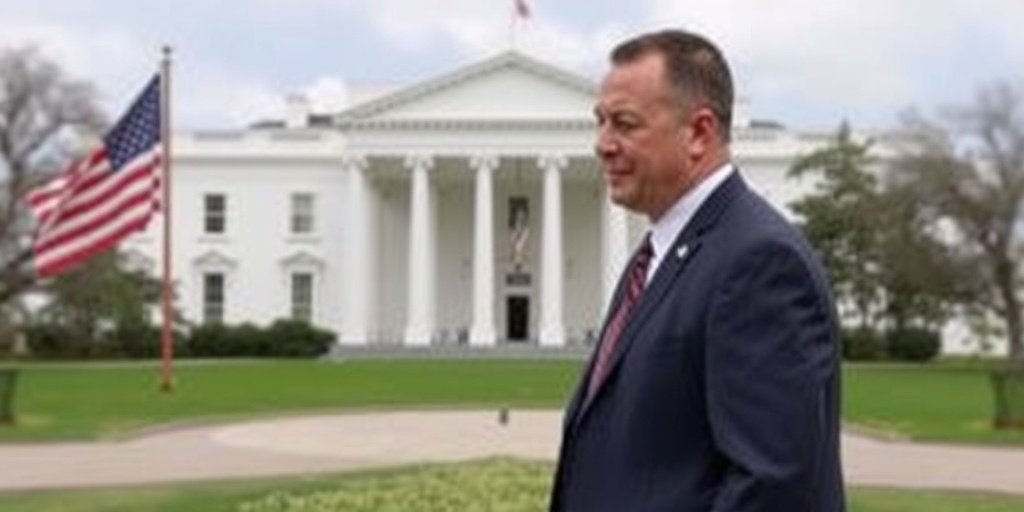Now Reading: Trump to Terminate Protections for Afghans and Cameroonians
-
01
Trump to Terminate Protections for Afghans and Cameroonians
Trump to Terminate Protections for Afghans and Cameroonians

Title: Trump Administration to End Temporary Protected Status for Afghan and Cameroonian Migrants
In a significant and controversial decision, the Trump administration has announced plans to terminate Temporary Protected Status (T.P.S.) for over 10,000 individuals from Afghanistan and Cameroon, setting the stage for potential deportations in May and June. This policy shift was confirmed by officials from the Department of Homeland Security on Friday, eliciting sharp criticism from immigration advocates and legal experts alike.
Temporary Protected Status is a humanitarian program designed to offer refuge to individuals from countries experiencing ongoing conflict or extreme natural disasters. Beneficiaries of T.P.S. are not only shielded from deportation but are also allowed to work legally in the United States, providing them a degree of stability in the face of turmoil in their home countries.
The Trump administration has targeted T.P.S. as part of its broader immigration enforcement agenda. Officials argue that the program has been misused, allowing migrants to remain in the U.S. indefinitely rather than for the brief periods initially intended. This year alone, the administration has worked to eliminate T.P.S. for Venezuelans and reduced the duration of protections for Haitians, signaling a tightening grip on immigration policies.
The decision to terminate T.P.S. for Afghan and Cameroonian nationals may provoke legal challenges. Earlier this month, Judge Edward M. Chen, a federal court judge in San Francisco, issued a temporary block against the administration’s attempt to end T.P.S. for Venezuelans, suggesting that similar actions may follow regarding the current situation for Afghan and Cameroonian migrants.
In his ruling, Judge Chen emphasized that the Trump administration’s actions could impose "irreparable harm" on hundreds of thousands of individuals, significantly disrupting their lives, families, and livelihoods. Moreover, he warned that such moves could result in economic repercussions for the United States, estimating billions of dollars in lost economic activity and detrimental impacts on public health and safety in communities across the nation.
Legal representatives involved in the lawsuit against the administration’s T.P.S. policies are closely monitoring the recent decisions regarding Afghanistan and Cameroon. Ahilan Arulanantham, an attorney at the Center for Immigration Law and Policy at UCLA, indicated a focused review of whether the government adhered to T.P.S. statutes that mandate evaluations of safety conditions in designated countries. Arulanantham stated, “We will closely examine the terminations to determine whether the government complied with the T.P.S. statute in determining Afghanistan and Cameroon are now safe to accept returns of their nationals.”
Under the Biden administration, protections for Afghan migrants were first established in 2022, following the sudden collapse of the Afghan government and the Taliban’s subsequent takeover. The administration extended these protections in 2023, citing ongoing threats from armed conflict, economic instability, and severe humanitarian issues such as lack of access to food, clean water, and health care. Similarly, the Biden administration extended T.P.S. for Cameroonian nationals this year, recognizing the persistent violence and upheaval affecting the nation.
As of late last year, over 9,000 Afghans and 3,000 Cameroonians were benefiting from T.P.S., with many relying on this status for their livelihoods and security in the U.S. The recent termination notices have alarmed community advocates and immigration experts who warn that revoking T.P.S. for these groups could have devastating consequences.
Tricia McLaughlin, a spokesperson for the Department of Homeland Security, conveyed the decision, stating, “the secretary determined that Afghanistan no longer continues to meet the statutory requirements for its T.P.S. designation and so she terminated T.P.S. for Afghanistan.” Similarly, T.P.S. for Cameroon was also revoked recently.
Julia Gelatt, an immigration expert from the Migration Policy Institute, has expressed grave concerns regarding the implications of this decision on the Afghan community. “Revoking T.P.S. for Afghans would be a stark reversal in the country’s treatment of Afghan allies who fought and worked alongside the U.S. government. Most Afghans in the U.S. have strong asylum cases based on their U.S. affiliation. This is even more true for Afghan women,” she analyzed. Gelatt further noted that ending T.P.S. for Afghans would likely funnel thousands into an already backlogged asylum system, complicating their efforts to secure safety and stability in the United States.
As the administration’s multi-faceted immigration policies continue to unfold, the intricate balance between national security and humanitarian obligations remains a contentious topic in the ongoing debate over U.S. immigration law. The legal and social repercussions of these decisions, particularly for vulnerable populations from countries in crisis, will likely resonate within communities and courts for years to come.
Stay Informed With the Latest & Most Important News
Previous Post
Next Post
-
 01New technology breakthrough has everyone talking right now
01New technology breakthrough has everyone talking right now -
 02Unbelievable life hack everyone needs to try today
02Unbelievable life hack everyone needs to try today -
 03Fascinating discovery found buried deep beneath the ocean
03Fascinating discovery found buried deep beneath the ocean -
 04Man invents genius device that solves everyday problems
04Man invents genius device that solves everyday problems -
 05Shocking discovery that changes what we know forever
05Shocking discovery that changes what we know forever -
 06Internet goes wild over celebrity’s unexpected fashion choice
06Internet goes wild over celebrity’s unexpected fashion choice -
 07Rare animal sighting stuns scientists and wildlife lovers
07Rare animal sighting stuns scientists and wildlife lovers





















